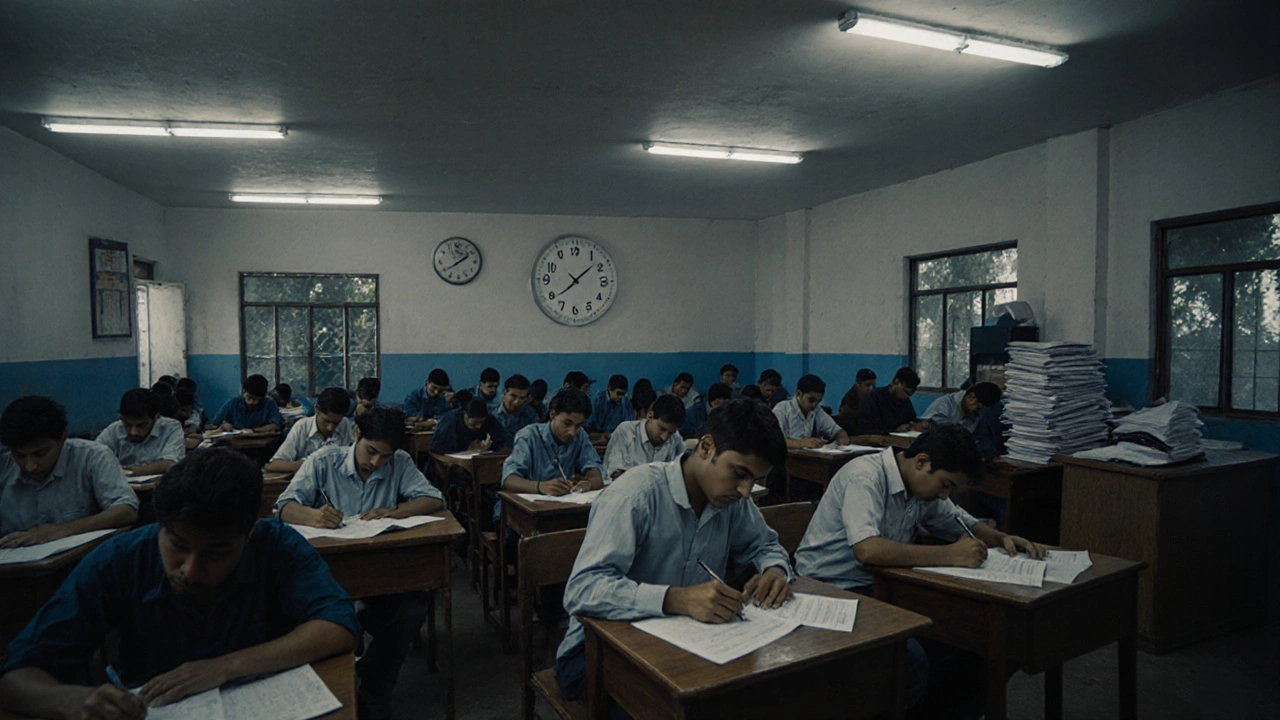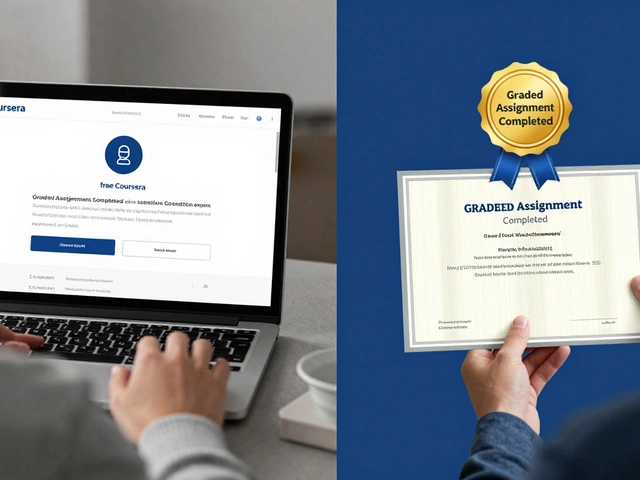Government Job Success Calculator
Calculate Your Government Job Success Rate
Based on South African government job statistics and successful candidate profiles, this tool estimates your realistic chances of getting hired. Enter your details below to see your score and receive personalized improvement tips.
Your success rate will appear here after calculation
Personalized Improvement Tips
Here are your specific recommendations:
Getting a government job sounds like a dream-stable salary, pensions, health benefits, and little risk of layoffs. But how realistic is it? If you’re sitting at home studying for a civil service exam or waiting for a job notification to drop, you’re not alone. Millions apply every year. Only a tiny fraction get hired. The truth? It’s harder than most people think. But it’s not impossible. Here’s what actually happens when you try to land a government job-and how you can tip the odds in your favor.
What Are the Real Odds?
In South Africa, over 1.2 million people applied for public sector jobs in 2024. Only about 45,000 were hired. That’s a success rate of just 3.7%. In countries like India, some exams see over 10 million applicants for a few thousand posts. For example, the UPSC Civil Services Exam in India had 1.1 million applicants for just 1,200 vacancies in 2024. That’s less than 0.1% chance of getting through.
Even in countries with smaller populations, the numbers are brutal. In Canada, the federal government hires around 8,000 people a year through open competitions, but receives over 200,000 applications. In the U.S., the Office of Personnel Management reports that some entry-level federal jobs receive 100 to 500 applications per opening.
So yes, the odds are stacked against you. But here’s the thing: those who succeed aren’t the ones who applied the most. They’re the ones who applied the smartest.
Why Do So Many People Fail?
Most applicants fail because they treat government exams like school tests. They memorize facts, cram last-minute, and assume hard work alone will win. But government hiring is a system-and systems have rules.
Here are the top three reasons people don’t make it:
- They don’t understand the exam pattern. Many think it’s all about general knowledge. But in most countries, the written test is heavily weighted toward reasoning, data interpretation, and situational judgment. In South Africa’s Public Service Commission exams, 60% of the score comes from problem-solving and ethics-based questions-not rote memorization.
- They skip the interview prep. Even if you pass the written test, the interview is where most get eliminated. Interview panels look for communication skills, emotional intelligence, and alignment with public service values. Many candidates come in with rehearsed answers but no real examples from their life.
- They apply randomly. Applying to every job posting you see is a waste of time. You need to target roles that match your qualifications, experience, and location. A job in Cape Town’s municipal services requires different skills than one in Pretoria’s national treasury.
What Jobs Are Actually Available?
Not all government jobs are the same. Some are high-competition roles like police officer, teacher, or tax auditor. Others are quietly in demand but get overlooked.
Here are the most accessible government jobs in South Africa right now (2025):
- Administrative Assistants - Municipalities and departments need these roles constantly. Requirements: Grade 12, basic computer skills, typing speed over 40 WPM.
- Community Health Workers - Especially in rural areas. No degree needed, but certification through a provincial health program is required.
- Library Technicians - Public libraries are expanding digital services. Need basic IT knowledge and customer service experience.
- Environmental Officers - Local governments are hiring for waste management, recycling, and urban planning support. A diploma in environmental science helps.
- IT Support Staff - Government offices are digitizing. You don’t need a degree-just certifications like CompTIA A+ or Microsoft Fundamentals.
These roles have lower applicant numbers because they’re not glamorous. But they’re stable, have clear promotion paths, and often lead to bigger opportunities.

How to Actually Improve Your Chances
Let’s cut through the noise. Here’s what works, based on real data from successful candidates in South Africa over the last three years.
- Apply only to jobs you’re 80% qualified for. Don’t waste time on jobs requiring a degree if you only have a diploma. Focus on roles where your actual skills match the job description word-for-word.
- Use the official exam syllabus-not random study guides. Every government department publishes a detailed syllabus. Download it. Break it into weekly chunks. Stick to it. Most applicants don’t even read the syllabus.
- Practice past papers under timed conditions. In 2024, candidates who completed at least five full past exams scored 42% higher on average than those who didn’t. Use the South African Public Service Commission’s archive or your province’s portal.
- Build a public service portfolio. Volunteer at a local clinic, join a community clean-up, or help with a municipal feedback project. These aren’t just resume fillers-they’re interview gold. Interviewers want to know you’ve lived the values of public service.
- Get feedback on your application. Many applicants get rejected without knowing why. Reach out to HR departments (yes, they’ll reply if you’re polite) and ask for feedback. Most will give you a one-page summary of what you missed.
What You Should Stop Doing
Here’s what doesn’t work-and wastes months of your life:
- Buying ‘guaranteed success’ courses. There’s no magic formula. If someone claims they can get you a job for R5,000, they’re selling hope. Real preparation is free: past papers, libraries, YouTube tutorials, and peer study groups.
- Waiting for the ‘perfect time’. People say, “I’ll start after I finish my degree” or “When I get more money.” The truth? The system doesn’t wait. Applications open when they open. If you’re not ready, you lose.
- Ignoring language requirements. In South Africa, many roles require proficiency in at least two official languages. If you’re applying for a job in KwaZulu-Natal, you need Zulu or isiXhosa. Skip this, and you’re out before you start.
- Applying with a generic CV. A CV that says “hardworking team player” gets thrown out. Tailor every application. Use keywords from the job description. Show, don’t tell.
Success Stories (Real People, Real Results)
Thandi Mokoena, 28, from Soweto, applied for seven government jobs over two years. She failed the first three written tests. But she didn’t quit. She started attending free workshops at the Johannesburg Public Library. She practiced past papers every Sunday. She volunteered at a local clinic three afternoons a week. In 2024, she was hired as a Community Health Worker in Soweto. Her salary? R18,500 per month-with benefits. She’s now training new hires.
Lerato Nkosi, 32, was a retail assistant. He had no degree. He studied IT fundamentals online for six months, got certified, and applied for an IT Support role at the Western Cape Department of Education. He was one of three people hired out of 890 applicants. His secret? He included screenshots of his online course certificates and wrote a short cover letter explaining how he fixed his neighbor’s computer during lockdown.
These aren’t outliers. They’re people who treated the process like a job-because it is.

How Long Does It Take?
Some people get hired within three months. Others wait two years. It depends on:
- How many times you’ve applied
- How well you matched the role
- Whether you got feedback and improved
The average time between first application and first hire is 14 months. That doesn’t mean you sit idle. It means you keep studying, keep applying, and keep improving.
If you’re serious, treat this like a 24-month project. Month 1-6: Learn the system. Month 7-12: Build skills and experience. Month 13-18: Apply strategically. Month 19-24: Refine and retry.
Where to Find Real Job Openings
Don’t rely on Facebook groups or WhatsApp forwards. Use official sources:
- South African Public Service Commission (SAPSC) - www.publicservice.gov.za
- National Department of Public Works and Infrastructure - www.dpwi.gov.za
- Provincial government portals - e.g., www.capetown.gov.za/jobs
- Public Service Vacancy Circulars - Published weekly in newspapers like The Star and Daily Sun
Set up email alerts on these sites. Check them every Monday. Jobs are posted on Tuesdays and Wednesdays. Apply within 48 hours.
Final Reality Check
Yes, government jobs are hard to get. But they’re not a lottery. They’re a skill-based system. The people who succeed are not the luckiest. They’re the most consistent.
If you’re willing to treat this like a long-term project-study smart, apply targeted, learn from rejection, and keep going-you will get one. Not because you’re special. But because you didn’t quit when others did.
Start today. Not tomorrow. Not after your birthday. Today.
What’s the easiest government job to get in South Africa?
The easiest government jobs to get are usually entry-level administrative or support roles like library technicians, community health workers, or municipal clerks. These positions often require only a Grade 12 certificate and basic computer skills. They have fewer applicants because they’re not seen as prestigious, but they offer stability and a clear path to promotion. Focus on roles in your local municipality-they’re often less competitive than national departments.
Do I need a degree to get a government job?
No, you don’t need a degree for most government jobs. Over 60% of public sector roles in South Africa require only a Grade 12 certificate or a national certificate at NQF Level 4. Jobs in IT support, administration, cleaning services, and community outreach don’t require degrees. What matters is your ability to pass the exam, complete the interview, and show you can do the work.
How much does it cost to apply for a government job?
Applying for a government job in South Africa is completely free. No department charges application fees. If someone asks you for money to process your application, it’s a scam. Beware of fake websites or agents offering to submit your application for a fee. Always apply directly through official government portals.
How long does a government job application take to process?
Processing times vary. Some applications are reviewed in 4-6 weeks. Others take 6-12 months, especially for national-level positions. If you haven’t heard back after 90 days, it’s safe to assume you weren’t selected. Don’t wait-apply for the next job while you wait. The system moves slowly, but you don’t have to.
Can I apply for multiple government jobs at once?
Yes, and you should. There’s no limit to how many government jobs you can apply for. In fact, successful applicants typically apply to 5-10 roles per year. Just make sure each application is tailored. Don’t copy-paste the same CV. Each job has different requirements. Customize your cover letter and highlight relevant experience for each one.
What if I fail the exam twice?
Failing twice doesn’t mean you’re not cut out for it. Most successful government employees failed at least once. The key is to analyze why you failed. Did you run out of time? Did you misunderstand the questions? Did you skip the interview prep? Get feedback. Study the syllabus again. Practice with timed tests. And apply again. Persistence beats talent every time in public sector hiring.




